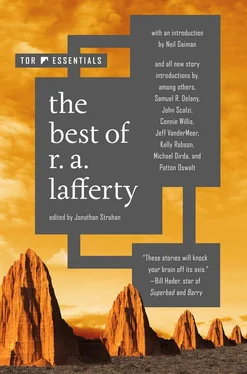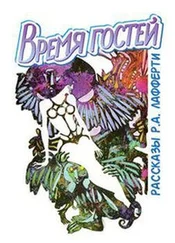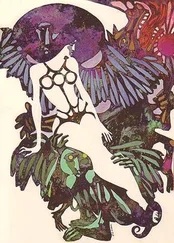The male person then said or thought something in a fuzzy thought-voice: “I have Miss Adeline Addams now. Why should I care about this Calliope clown? It’s irritating the way she keeps turning chalk-white and falling down. I never saw anyone make such a fuss over nine quarts of blood. But now I am on a new and more glorious dawn road. Is it not peculiar how a man will fall in love with one woman and out of love with another one at the same time?”
11. The Ghost at the Opera is the eleventh of the Aurelian Bentley television dramas in the year 1873. The Ghost is based on Verdi’s Il Trovatore, but Bentley’s production is quite original for all that. The role of Leonora is played by Miss Adeline Addams. But the same role is also played by Clarinda Calliope, who was originally selected to play the role by herself. This business of having two different persons playing the same role creates a certain duality, one might almost say a certain duplicity, in the drama.
The “Ghost” is the doubling: it is the inept and stumbling Clarinda trying again and again to sing parts of the Leonora role and failing in it totally and being jerked off stage by the stage manager’s crook; and it is the beautiful and brimming genius Adeline Addams coming on and performing the same role brilliantly. This provides the “cruel comedy” that is usually lacking in Verdi; for, without cruelty, only a limited success is ever possible in opera. But Clarinda took some very bad falls from the stageman’s crook jerking her off her feet, and besides she was still weak and falling down from all the blood she had lost in her roles in The Vampires of Varuma . She was suffering.
“Why do you go through with it, Clarinda?” Hubert Saint Nicholas asked her once in an outside-of-the-play-itself voice. “Why do you allow yourself to be tortured and humiliated like that?”
“Only for the money,” Clarinda was heard to say. “Only for the actor’s fee of four dollars a day. I am clear broke and I am hungry. But if I can stick it out to the end of the opera, I will have four dollars tonight for my wages.”
“Four dollars, Clarinda? The rest of us get only two dollars a day. Are you playing another role that I don’t know about?”
“Yes, I am also playing the role of Wilhelmina, the outhouse cleaner.”
“But I thought that you had millions from that old tyrant, Clarinda.”
“It’s gone, Hubie, all gone. I had expenses that the world wotted not of. I gave Apollo most of the money when I was in love with him. And I gave the rest of it to him to do a special favor for me.”
“You gave the money to him today? But he was buried yesterday.”
“Time seems to go faster as we get older, doesn’t it?”
Meanwhile, back on the opera stage, a new Verdi was being hammered out. Leslie Whitemansion was playing Manrico. X. Paul McCoffin was playing Ferrando. Hubert Saint Nicholas was playing Count di Luni. Apollo Mont-de-Marsan was playing the ghost. But was there a ghost in the libretto besides the double ghost of the two females playing the same role? Yes, there was; there was a real ghost in the libretto. It was written in there in a queer “other” hand, really a “ghostly” hand, and it wrote that Apollo was playing the role of the ghost.
So the merry comic opera went along almost to its end. It was just when Manrico was being led to the executioner’s block and the evil Count di Luni was gloating in triumph, when everything was finally being shaped up in that drama that had some pleasure for everybody, that a horrible thing happened in one of the loges or boxes that overhung the stage.
Aurelian Bentley was knifed there in his box at the opera. Oh God, this was murder! “Your mind is looking for a better solution, I believe, for a neater murder.” Oh, that had been the voice of another sort of ghost. But now, to be slain by the ghost of a man dead only a day or two, and in the presence of several thousands of persons here! (For it was, possibly, none other than Apollo Mont-de-Marsan, who had been “gotten rid of,” who was getting rid of Aurelian Bentley.) And again: “There are good murders and bad murders, you see … It seems it would be worth it, for art’s sake, for the perfect murder.” Aurelian Bentley was stabbed to death in his box at the opera there, but even he had to admit, with some appreciation, as he went, that it was done with art.
And immediately, as the opera on stage came to its great conclusion, there welled up cries of “Author, Author, Bentley, Bentley!”
Then the dying (or more likely dead) man rose for the last time, bowed formally, and tumbled out of his box and onto his face on the stage, stark dead, and with the thirsty (now slaked) dagger twinkling between the blades of his shoulders.
What other man had ever made such an exit from or on life’s stage! That was Theater! That was Drama!
12. An Evening in Newport was intended to be the twelfth of the Bentley television dramas. But it was never produced; possibly because of the death of its producer. It exists only as a libretto.
There was a high society “drama of manners,” as Miss Adeline Addams knew it, as Aurelian Bentley with his quick mind and quick mimicry knew it from his brief brushes with it. But does not a drama or comedy of manners depend largely on the quip and the arch aphorism? How could it be done in silent presentation?
By art, that’s how it might be done: by the perfect art of the silent mimes, and Aurelian Bentley was master of that art. By the gestures, by the facial implications, by great silent acting this might be done. Was there any witticism that Adeline Addams could not express with her talented high-society face? Was there any devastating riposte that she could not give with her autocratic hands? It was never tested, but Aurelian believed that she was pretty good.
On the lower level, An Evening in Newport was a one-sided duel between Mistress Adeline Addams of Newport, playing the role of Mistress Adela Adams of Newport, and Clarinda Calliope, playing the role of Rosaleen O’Keene, a low, vicious, ignorant, filthy, bad-mannered, fifth parlor maid newly arrived from Ireland. It was a stacked set in favor of Adeline/Adela.
On the higher level, the drama was the passionate portrayal of the total love of a beautiful and wealthy and intelligent and charming and aristocratic young lady (Adeline-Adela) for a man of surpassing genius and ineffable charm, a man of poise and power and heroic gifts, a man the like of whom will hardly appear once in a century. The drama was supposed to take on a note of hushed wonder whenever this man was mentioned, or so the libretto said. The libretto does not identify this exceptional man, but our own opinion is that the librettist, Aurelian Bentley, intended this hardly-once-in-a-century man, the object of the torrid and devoted love of Miss Adeline Addams, to be himself, Aurelian Bentley.
But An Evening in Newport, intended to be the surpassing climax of that first and still unsurpassed television series, was never produced.
13. Pettifoggers of Philadelphia is the noncanonical, apocryphal, thirteenth apocalypse of The Wonderful World of Aurelian Bentley, that first and greatest television series. There is no libretto to it. There is no formal production, and it does not carry the Bentley “Seal of Production.” But it does repose in one of the old television receivers, the one that was Aurelian’s own control receiver, the one that was in Aurelian’s own luxurious den where he spent so many hectic hours with Clarinda Calliope and later with Adeline Addams. It reposes there, and it may be seen and heard there.
Though Bentley was already dead when these scenes were ordered and live-presented, yet he walks in them and talks in them. The experience of hearing the thoughts and words of a hovering dead man spoken out loud and of seeing him as if in the flesh is a shattering but dramatic one.
Читать дальше




![Рафаэль Лафферти - Дни, полные любви и смерти. Лучшее [сборник litres]](/books/385123/rafael-lafferti-dni-polnye-lyubvi-i-smerti-luchshe-thumb.webp)
![Рафаэль Лафферти - Лучшее [Сборник фантастических рассказов]](/books/401500/rafael-lafferti-luchshee-sbornik-fantasticheskih-ra-thumb.webp)